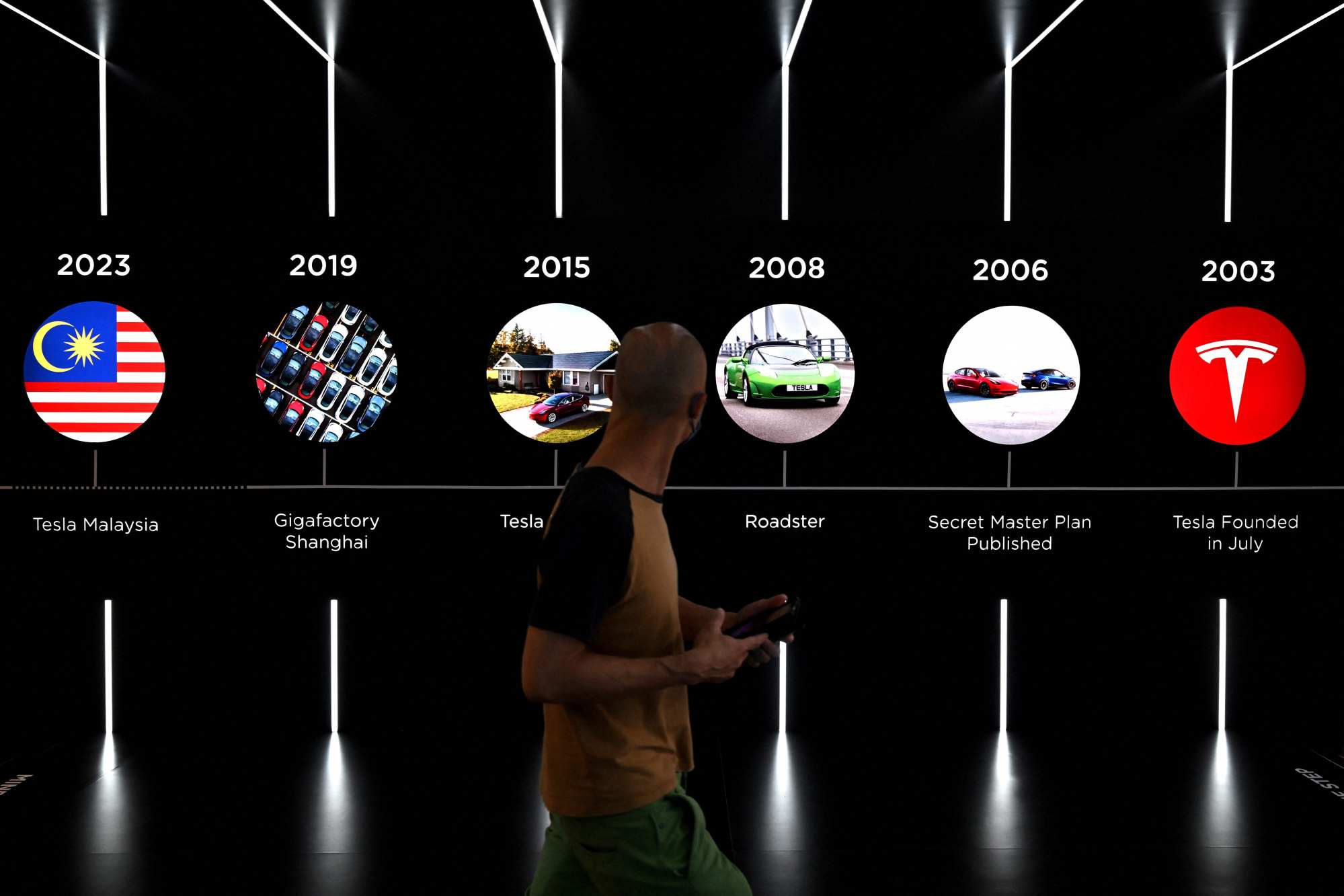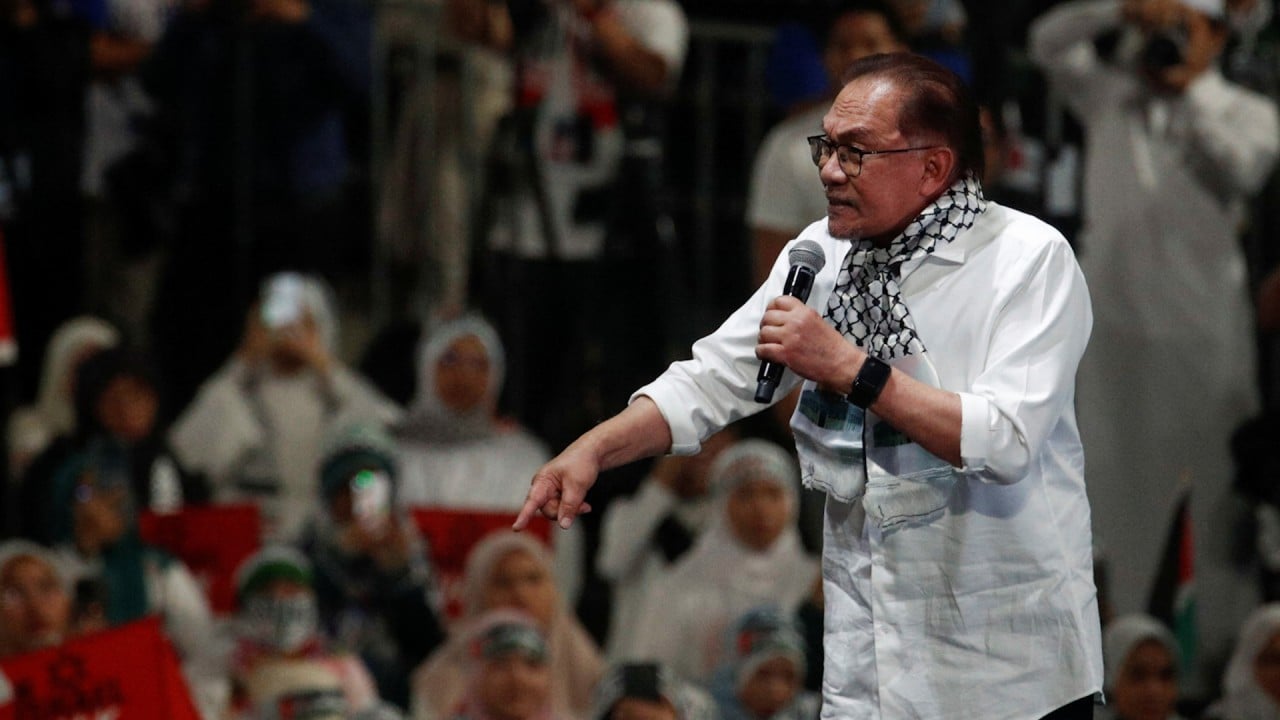A year on, has Malaysian PM Anwar Ibrahim lost ‘sense of urgency’ in pushing for reforms?
“This is a person who went into power on the back of a campaign for institutional reform,” said Wan Saiful Wan Jan, an opposition MP from the Malay-nationalist Bersatu party. “He continues to verbalise the need for institutional reform, but in terms of implementation nothing has been done.”
The government has made a hard push towards slashing red tape to speed up the approval process for privately funded projects, following concerns over delays in approvals by local authorities raised by investors during their meetings with Anwar.
But more needs to be done, analysts say, as the country faces the prospect of weak demand for its all-important exports, which contribute about 25 per cent to gross domestic product, and limited government revenue amid high spending with subsidies expected to hit 81 billion ringgit this year.
“There needs to be a greater sense of urgency when it comes to pushing for reforms, especially in the economic sphere,” said Amir Fareed Rahim, a director of strategy with government policy consultancy KRA Group.
Malaysia’s central bank expects the economy to grow by 4-5 per cent in 2024, improving on the 4 per cent forecast for this year, but Amir warned that the public remained saddled with elevated living costs and a weak currency, which fed into the cost of doing business.
“Anwar needs to spend more time on the domestic economy,” he said.
Staying the course
The prime minister’s own allies have raised concerns that he may be too distracted by current affairs to focus on the task at hand.
This has been attributed in part to what has been described as an attempt to broaden his appeal among the country’s Malay-Muslim majority by leveraging his Islamist credentials from the days he spent as a youth activist and co-founder of the Malaysian Islamic Youth Movement or Abim.
“Anwar runs the risk of trying to please everyone, and ending up pleasing none,” Shazwan Mustafa Kamal, an associate director with corporate advisory firm Vriens & Partners, told This Week in Asia.
“Given the relative political stability, for now, his administration should focus on key reforms promised over the next two to three years instead of being locked in a race with the opposition to burnish conservative credentials.”
‘Frustrating’: Anwar’s Palestinian cause risks overshadowing Malaysian reforms
‘Frustrating’: Anwar’s Palestinian cause risks overshadowing Malaysian reforms
Analysts say it is crucial for Anwar and his administration to pursue economic reforms as a priority over the immediate term, if they hope to have sufficient funds to carry out needed development projects while also reducing the country’s deficit.
When unveiling his 2024 budget in October, Anwar said the government expected to narrow the fiscal deficit to 4.3 per cent next year, from a projected 5 per cent target in 2023, through more prudent spending and on the back of stronger growth forecasts.
“There’s a lot that can and needs to be worked on, including managing the rationalisation of subsidies as well as increasing the sustainability of the economy,” KRA Group’s Amir said. “Subsidy rationalisation must be outlined more transparently to manage expectations and secure a buy-in from the wider public.”

Investor focus
But Anwar has also secured some notable wins, particularly by paving the way for hundreds of billions of ringgit in potential new investments, helped along by a more liberal policy for foreign investors looking to set up shop in Malaysia.
More recently, the prime minister told parliament on Tuesday that battery maker Enovix and Silicon Valley giants Google, Microsoft and TikTok had committed to investments totalling nearly 55 billion ringgit over the next 10 to 15 years.
“I think the government’s approach in attracting investments is heading in the right direction and the government has been sending the right message,” said Adib Zalkapli, a Malaysia director with political risk consultancy BowerGroupAsia.
“It’s clear that the government is slowly moving away from the protectionism of the 1980s and 1990s,” he said, referring to strict rules on business ownership that had required foreign investors to set aside a 30 per cent equity share for local partners.
Malaysia’s next ‘hands-on’ king Sultan Ibrahim set to give PM Anwar ‘tough time’
Malaysia’s next ‘hands-on’ king Sultan Ibrahim set to give PM Anwar ‘tough time’
But beyond the big headline numbers, some Malaysians feel that Anwar has not performed as they had hoped.
A survey on Anwar’s one-year performance released on Wednesday by independent pollster Merdeka Center found that about 60 per cent of the respondents felt the country was headed in the wrong direction, and more than three-quarters of them were most concerned about economic issues.
Freelance writer and Kuala Lumpur resident Cindi Loo said the government under Anwar’s stewardship has not had the courage to implement necessary policy changes such as targeted petrol subsidies.
The government also seems more populist, Loo said, pointing to a 12 million-ringgit budget announced on Monday to upgrade a remote school in Sabah state in Malaysian Borneo, just days after a video went viral of the school’s headmaster sharing how he was forced to live in a storeroom due to the lack of teachers’ quarters.
“I feel like Anwar is not really an effective PM, one year on … hopefully he plays a bigger role domestically,” said Loo, who is a mother-of-one.






